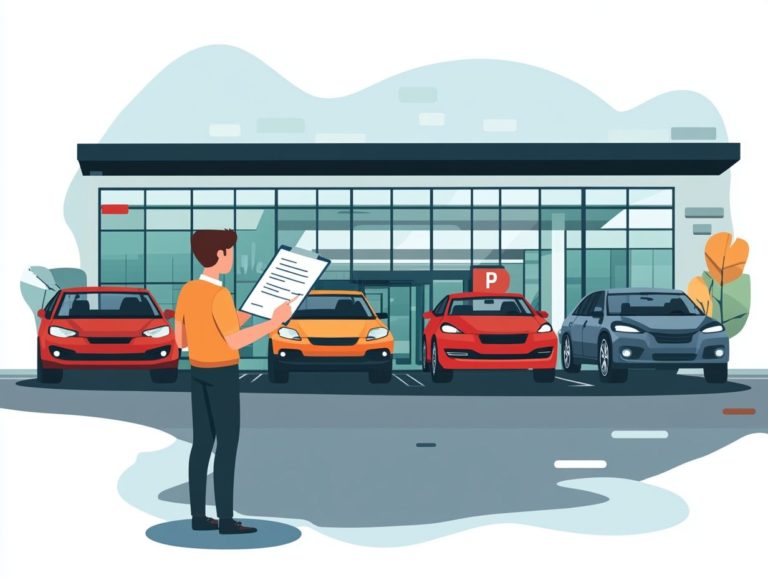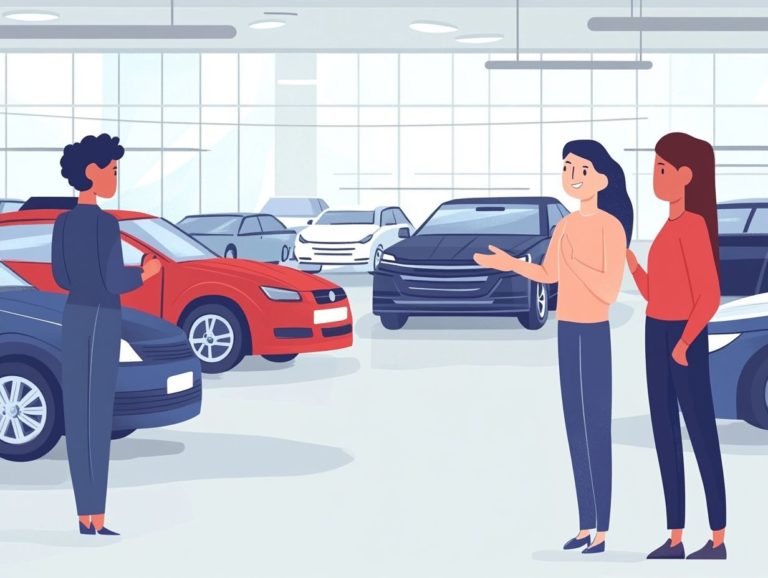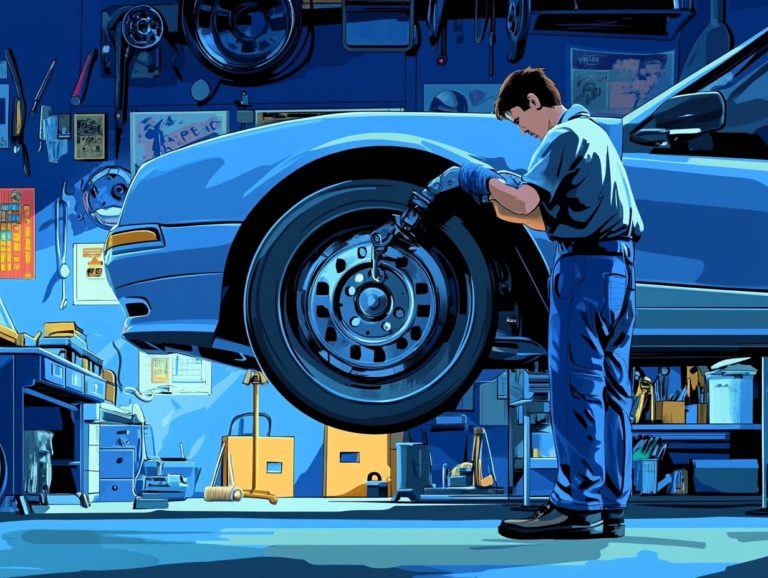What to Know About Used Car Recalls
Car recalls can feel overwhelming for any vehicle owner, particularly if you drive a used car. Grasping what a car recall entails and recognizing its common triggers is vital for your safety on the road.
This guide equips you with the essentials of car recalls, detailing the steps to take if your vehicle is recalled. It also offers tips for maintaining your car to ward off future issues. Stay informed and empower yourself as a consumer!
Contents
Key Takeaways:
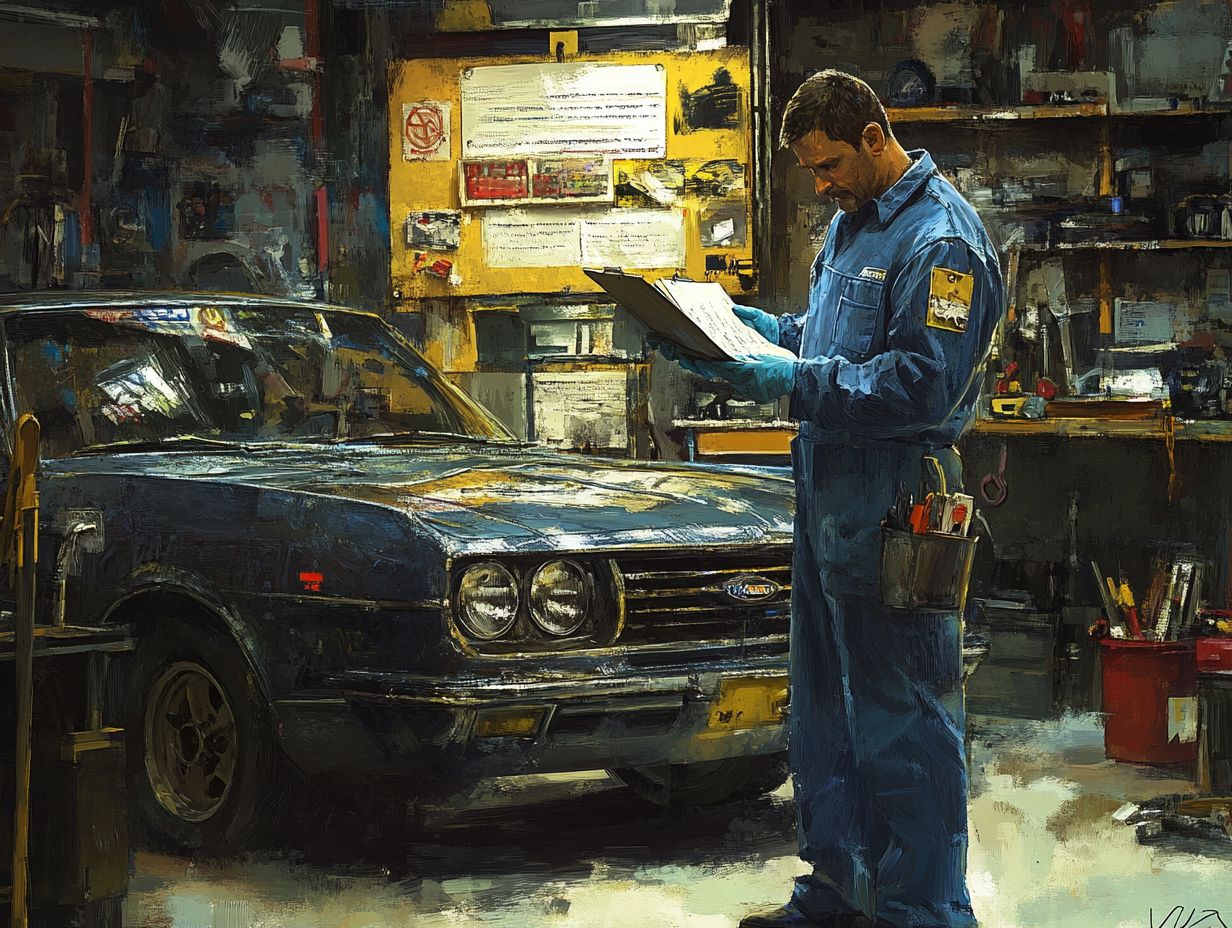
Car recalls are issued when a vehicle or its parts have safety concerns that may put drivers and passengers at risk. Regularly check for recalls on a used car.
If your used car is recalled, act quickly; your safety depends on it. You have rights as a consumer and should take immediate action to address the issue and ensure future safety by maintaining your vehicle properly.
Understanding Car Recalls
Understanding car recalls is essential, whether you’re buying or selling a vehicle. These recalls can affect your safety and how you feel about owning the car.
A recall happens when car makers find safety problems that fail to meet the standards established by the National Highway Traffic Safety Administration (NHTSA). Staying informed about recalls is crucial, as this knowledge directly ties into the safety and reliability of the used cars available in the marketplace.
What is a Car Recall?
A car recall is essentially a formal notice from a manufacturer alerting you when a vehicle has safety defects or fails to meet safety standards. This prompts either a voluntary or mandatory corrective action aimed at safeguarding both you and the manufacturer.
In a voluntary recall, manufacturers take a proactive stance, acknowledging problems and working to resolve them. Mandatory recalls happen when regulatory bodies find serious safety risks.
At the heart of this entire process is the vehicle identification number (VIN), which pinpoints the affected vehicles, ensuring you receive accurate notifications.
Grasping the recall process is essential. It highlights the manufacturer s accountability while stressing the importance of promptly addressing safety defects to prevent accidents and enhance road safety.
Common Reasons for Car Recalls
Common reasons for car recalls typically revolve around defective parts and serious safety concerns that can endanger both vehicle occupants and the general public. A notable example is the Takata airbag recall, which impacted millions of vehicles.
The issue stemmed from faulty airbag inflators that had the potential to deploy incorrectly, resulting in severe injuries and, tragically, fatalities.
Defective Parts and Safety Concerns
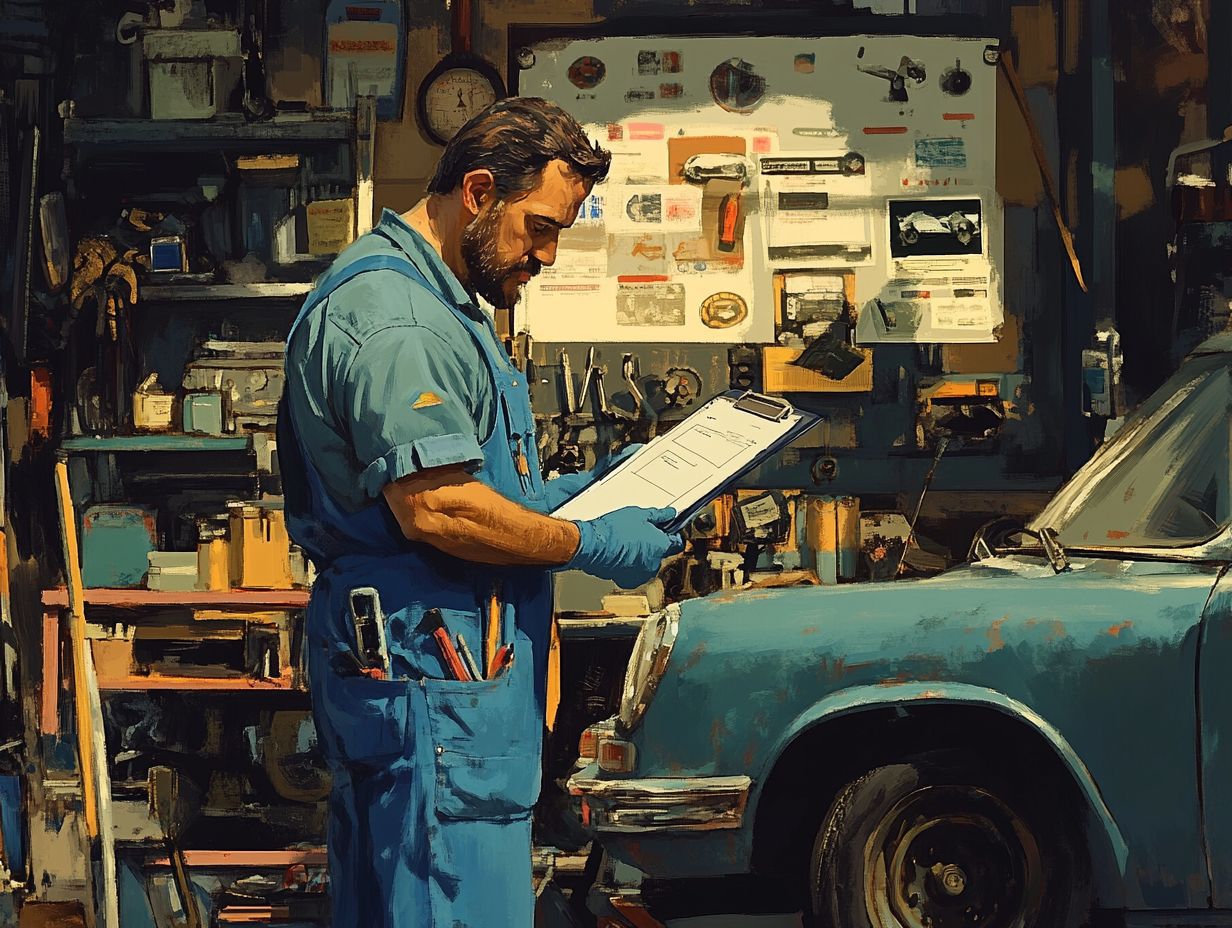
Defective parts in vehicles can lead to serious safety concerns. Manufacturers issue recalls to address these issues and ensure compliance with automotive regulations.
Commonly affected components include:
- Braking systems essential for your stopping power
- Fuel systems that can pose fire hazards
- Electronic components responsible for various vehicle functions
When a recall is initiated, a structured process comes into play. This includes notifying you, detailing the problem, and outlining the necessary remedies. Manufacturers and dealers must meticulously document repairs, ensuring that all recalled parts are effectively replaced or repaired.
This commitment not only helps restore safety but also reinforces the trust between you and manufacturers, highlighting the significance of maintaining high safety standards.
How to Check for Recalls on a Used Car
When considering the purchase of a used car, it’s crucial to check for any recalls. This step ensures you are well-informed about any open recalls that could impact the safety and reliability of the vehicle.
One of the most effective methods for uncovering this vital information is through a VIN lookup. This process reveals comprehensive details about the vehicle’s history, including any existing safety alerts that you should be aware of.
Using Online Resources and Checking Your VIN
Using online resources and checking your VIN are effective methods for accessing recall alerts and safety information specific to your vehicle. These digital tools let you ensure your vehicle’s safety.
Start by visiting the NHTSA website, a trusted source for vehicle safety information. Look for the VIN lookup tool on the homepage.
After entering your Vehicle Identification Number, you ll get detailed insights, including any outstanding recalls and what they entail. This empowers you to make informed decisions about your vehicle, whether you’re a buyer or an owner.
What to Do if Your Used Car is Recalled
If your used car is recalled, understand the recall process and your rights as a consumer. This knowledge helps you ensure necessary repairs are done at no cost.
As a consumer, you have rights that safeguard you during this process. Dealers must provide repair documents and perform repairs at no cost.
Steps to Take and Your Rights as a Consumer
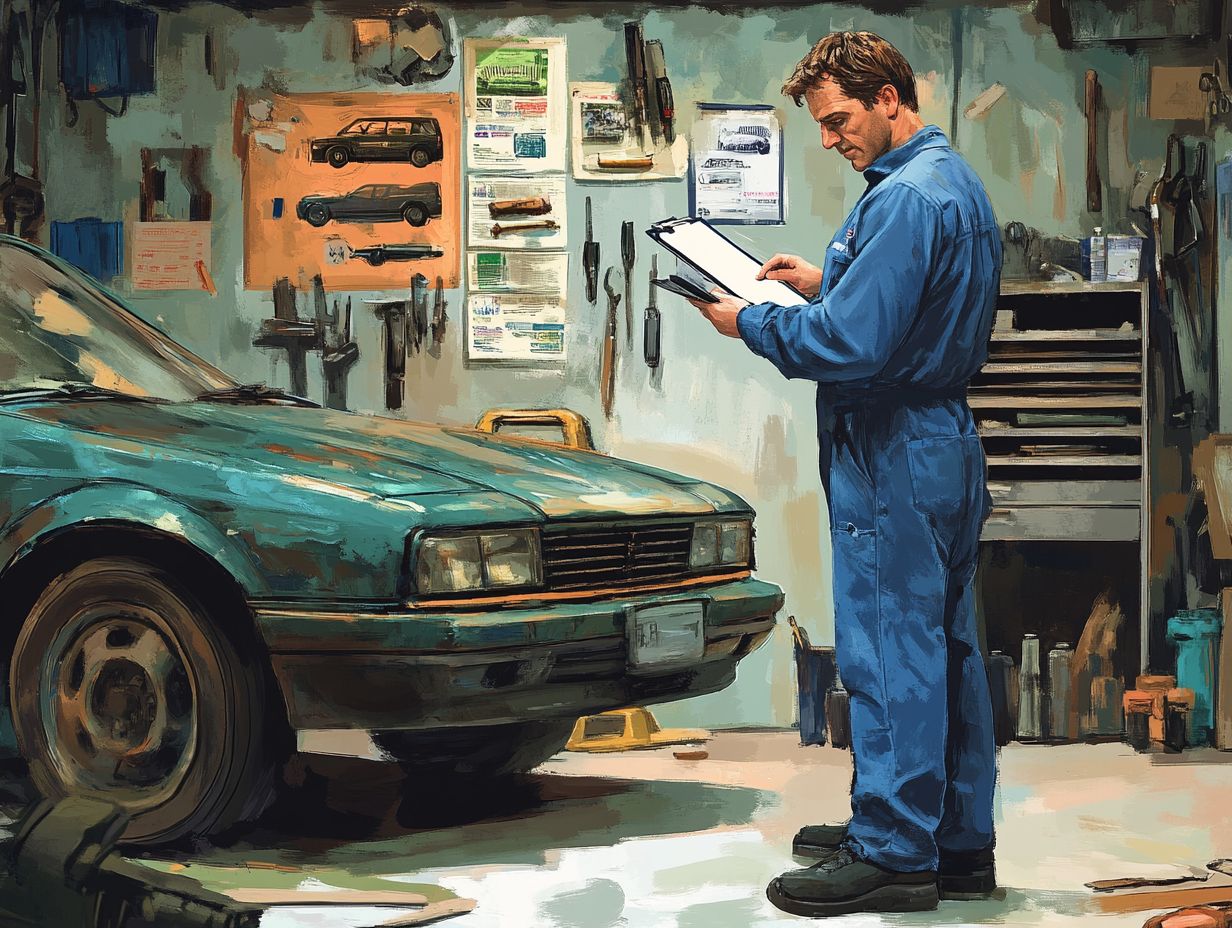
Understanding the steps to take when your vehicle is recalled, along with your rights as a consumer, is essential for ensuring that necessary repairs are executed efficiently and without incurring extra costs.
When you receive a recall notice, contact your dealership immediately to schedule repairs. Ask about parts availability and repair timelines, as dealerships must address these issues promptly.
It s wise to familiarize yourself with your rights under recall laws, which often cover repair costs in full. If any charges do arise, remember that the dealership is responsible for resolving these issues, safeguarding your financial interests throughout the recall process.
Preventing Recalls in the Future
Prevent future recalls with proactive vehicle maintenance. Regular inspections help you catch potential safety concerns before they become serious.
Understanding automotive safety regulations is vital for ensuring your vehicle remains both reliable and safe on the road.
Maintaining Your Used Car for Safety and Reliability
Maintaining your used car for safety and reliability is essential to minimize the risk of significant safety hazards and recalls in the future. This not only ensures your vehicle operates efficiently but also extends its lifespan and safeguards your investment.
Regularly check critical components like brakes, tires, and fluids. Stick to the manufacturer’s recommended maintenance schedule to avoid unexpected breakdowns or costly repairs.
Staying informed about safety alerts and recalls is crucial, as many older models may have pending issues that need immediate attention. Understanding the repair process empowers you to make informed decisions when servicing your vehicle.
Frequently Asked Questions
What to Know About Used Car Recalls?
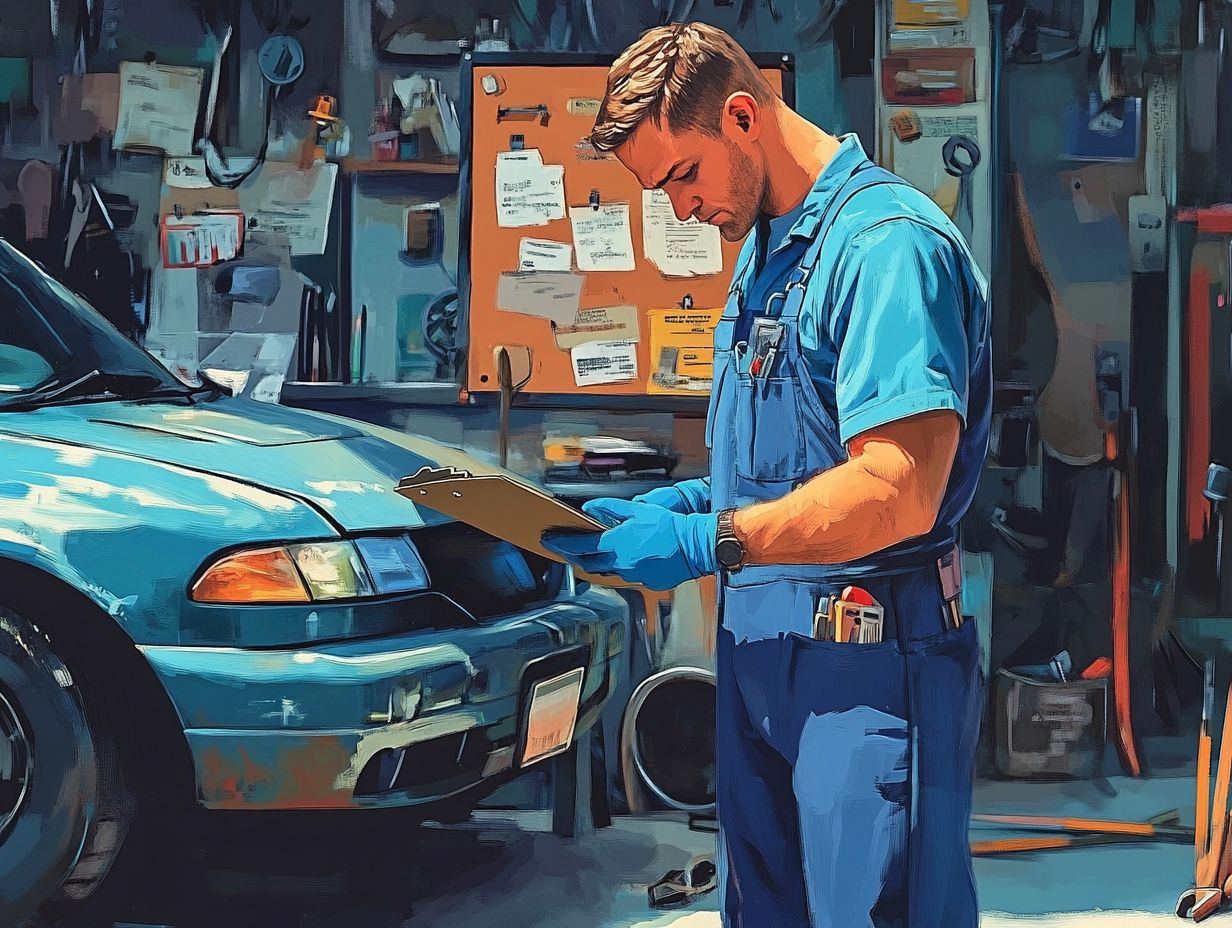
Used car recalls refer to safety issues or defects discovered in a specific make or model. These issues can range from minor problems to major safety concerns.
Why are used car recalls important?
Used car recalls are crucial for ensuring the safety of drivers and passengers. You must take recalls seriously! Ignoring a recall can lead to accidents or other hazards, so it’s vital to address them promptly.
How can I find out if a used car has a recall?
Check the NHTSA website to find out if a used car has a recall. You can enter the car’s make and model in their searchable database.
What should I do if my used car has a recall?
If your used car has a recall, contact the manufacturer or a certified dealership right away. They usually fix it for free, so don’t wait!
Can I still buy a used car with a recall?
Yes, you can buy a used car with a recall. Just make sure to have the recall issue fixed before you drive it.
Are all used cars required to fix recalls?
No, not every used car must have recalls repaired. If the car is older or has high mileage, repairs might not be free. Still, addressing recalls is essential for safety.


